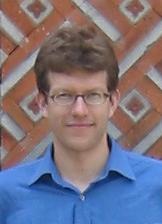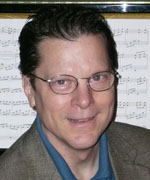
|
|
Adrian Perrig Professor in Electrical and Computer Engineering, Engineering and Public Policy, and Computer Science Carnegie Mellon University Adrian Perrig is a Professor in Electrical and Computer Engineering, Engineering and Public Policy, and Computer Science at Carnegie Mellon University. Adrian also serves as the technical director for Carnegie Mellon's Cybersecurity Laboratory (CyLab) and for the iCast project. He earned his Ph.D. degree in Computer Science from Carnegie Mellon University, and spent three years during his Ph.D. degree at University of California at Berkeley. He received his B.Sc. degree in Computer Engineering from the Swiss Federal Institute of Technology in Lausanne (EPFL). Adrian's research revolves around building secure systems and includes network security, trustworthy computing and security for social networks. More specifically, he is interested in trust establishment, trustworthy code execution in the presence of malware, and how to design secure next-generation networks. More information about his research is available on Adrian's web page. He is a recipient of the NSF CAREER award in 2004, IBM faculty fellowships in 2004 and 2005, and the Sloan research fellowship in 2006. |
 |
|
Ernie Brickell Chief Security Architect Intel Corporation Ernie Brickell is the Chief Security Architect at Intel. He runs the Security Architecture Forum which is the decision making body on security architecture at Intel. He is responsible for review and approval of all security architectures across all products at Intel and evaluating new technologies for their impact on security and privacy of Intel platforms. He is also responsible for developing priorities for path finding for security technologies. Ernie earned his BS in Mathematics from Oklahoma State University in 1975. He went on to the Ohio State University for both his MS in Computer and Information Science in 1978, and a Ph.D. in Mathematics in 1981. He started his career at Sandia National Laboratories in 1981, joined Bellcore in 1985, went back to Sandia in 1988, joined a startup, Certco in 1995, and then joined Intel in 1999. He has chaired, been a program chair, and been a guest speaker at the annual Crypto and Eurocrypt conferences. He was the founding Editor-in-Chief of the Journal of Cryptology, and served as editorial board member for 12 years. Ernie has focused his recent personal research on privacy protocols. He developed with coauthors, Jan Camenish and Liqun Chen, the Direct Anonymous Attestation protocol so that a hardware device could provide a proof that it was a trusted device without revealing the identity of the device. With coauthor Jiangtao Li, he improved the revocation capability so that an anonymous signer of a message could be revoked. Earlier in his career, Ernie received a reward from the author for breaking the Merkle Hellman knapsack cryptosystem. He also invented protocols for secure audio teleconferencing as well as a private, yet traceable, electronic cash system, and developed a classification for ideal secret sharing schemes. |
| Invited Papers |
|---|
| The Monterey Security Architecture Cynthia E. Irvine, Thuy N. Nguyen, Timothy E. Levin, David S. Shifflett, Timothy Levin, Jean Khosalim Charles Prince, Paul C. Clark, And Mark Gondree |
| Full Papers |
| Trust in a Small package - Minimized MRTM Software Implementation for Mobile Secure Environments Jan-Erik Ekberg and Sven Bugiel |
| TruWallet: Trustworthy and Migratable Wallet-Based Web Authentication Sebastian Gajek, Hans Löhr, Ahmad-Reza Sadeghi and Marcel Winandy |
| LaLa: A Late Launch Application Carl Gebhardt and Chris I. Dalton |
| A Practical Property-based Bootstrap Architecture René Korthaus, Ahmad-Reza Sadeghi, Christian Stüble and Jing Zhan |
| Short Papers |
| Dynamic Integrity Measurement and Attestation: Towards Defense Against Return-Oriented Programming Attacks Lucas Davi, Ahmad-Reza Sadeghi and Marcel Winandy |
| Towards Platform-Independent Trusted Computing Ronald Toegl, Thomas Winkler, Mohammad Nauman and Theodore Hong |
| Physically Restricted Authentication with Trusted Hardware Michael Kirkpatrick and Elisa Bertino |
| Towards Secure DataFlow Processing in Open Distributed Systems Juan Du, Wei Wei, Xiaohui Gu and Ting Yu |
| 07:30 - 09:00 | Breakfast |
| 09:00 - 09:30 | Welcome |
| 09:30 - 10:30 | Keynote 1 |
| Adrian Perrig Designing Secure Systems with Attestation |
|
| 10:30 - 11:00 | Short Break |
| 11:00 - 12:30 | Software-based Approaches to Secure Computing (Chair: Xiaohui Helen Gu, North Carolina State University) |
| LaLa: A Late Launch Application Carl Gebhardt and Chris I. Dalton |
|
| Trust in a Small package - Minimized MRTM Software Implementation for Mobile Secure Environments Jan-Erik Ekberg and Sven Bugiel |
|
| TruWallet: Trustworthy and Migratable Wallet-Based Web Authentication Sebastian Gajek, Hans Löhr, Ahmad-Reza Sadeghi and Marcel Winandy |
|
| 12:30 - 14:00 | Lunch & Mingle |
| 14:00 - 15:00 | Keynote 2 |
| Ernie Brickell A Vision for Platform Security |
|
| 15:00 - 16:00 | Architectural Approaches to Secure Computing (Chair: Jon McCune, Carnegie Mellon University) |
| A Practical Property-based Bootstrap Architecture René Korthaus, Ahmad-Reza Sadeghi, Christian Stüble and Jing Zhan |
|
| MYSEA: The Monterey Security Architecture Cynthia E. Irvine, Thuy N. Nguyen, Timothy E. Levin, David S. Shifflett, Timothy Levin, Jean Khosalim Charles Prince, Paul C. Clark, And Mark Gondree |
|
| 16:00 - 16:30 | Short Break |
| 16:30 - 17:30 | Short Papers (Chair: Christian Stüble, Sirrix AG security technologies) |
| Dynamic Integrity Measurement and Attestation: Towards Defense Against Return-Oriented Programming Attacks Lucas Davi, Ahmad-Reza Sadeghi and Marcel Winandy |
|
| Physically Restricted Authentication with Trusted Hardware Michael Kirkpatrick and Elisa Bertino |
|
| Towards Platform-Independent Trusted Computing Ronald Toegl, Thomas Winkler, Mohammad Nauman and Theodore Hong |
|
| Towards Secure DataFlow Processing in Open Distributed Systems Juan Du, Wei Wei, Xiaohui Gu and Ting Yu |